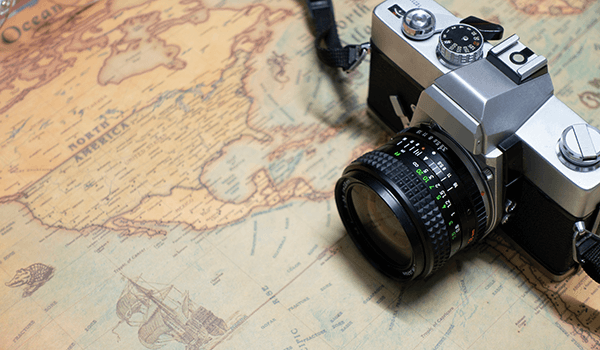February 15, 2024
Lessons from Uncle Carl

By Julie Gregory, Chief Health Liaison for Apollo Health
I’ve spent the last ten years caring for my 95-year-old uncle with Alzheimer’s … and the last two weeks holding his hand as he lay dying. That precious time gave me the opportunity to reflect on our journey together. If you’ve read My Father’s Books, you know that I’ve almost always been without my father; he died when I was just two years old. For that reason, my uncle was something of a bridge to the father I never knew. However, because I only saw him a few times as a child, he was more of a mythical giant than an actual human being. In 2012, when I returned to my hometown to die or fight for my life (I was sorting that out; see my full story in The First Survivors of Alzheimer’s), he also returned home to move into a local assisted living facility as he was struggling to live independently. Because he never had children of his own, he somehow became my responsibility. Starting with weekly visits, this fatherless girl got to know this sweet, childless man who forever changed me simply by the way he conducted his life.
After high school, my Uncle Carl was drafted into the Army shortly after WWII. He described that experience as the “worst year of his life,” but it ended up being a blessing in disguise as he learned how to take photographs while stationed at Fort Monmouth, New Jersey, with a 4×5 Crown Graphic camera that he begged his grandmother to help him purchase for $125 before he left. This skill was one that would open doors to an incredible career. After finishing his bachelor’s degree at Indiana University, he was hired by the National Education Association, where he covered major stories as a photojournalist, including the march on Selma, where Martin Luther King delivered the “How Long, Not Long speech” and many other key moments in the civil rights movement. There’s even a statue of him (to represent the important role that journalists played) in the front hall of the MLK Museum in Montgomery, AL.
In addition to also working as a freelance photographer, he went on to work for other government agencies, including the Peace Corps, where he served as the director of photography, the US Agency for International Development, where he documented Americans working in under-developed countries and for the National Oceanic and Atmospheric Agency where he covered natural disasters and documented climate change. Through his photos, he brought the truth to light, fought for social justice, and brought beautiful, exotic locales to many who would never otherwise see them. Sifting through thousands of his slides, I’ve found intimate photos of John F. Kennedy’s funeral, among many other notable occasions that he photographed. In his lifetime, he traveled almost four million miles to 100 countries. He’s the author of five books and countless newspaper and magazine columns, and his work has been featured in Life, Look, Parade, Holiday, and National Geographic, among many other notable magazines. You’ve likely seen one of his photos if you recall the very first “Forever” stamp that depicted the Statue of Liberty superimposed on the American flag.
Despite this great big life, the Uncle Carl I got to know wasn’t a big personality. He was the opposite — quiet and unassuming. He hated hot vegetables but loved salads, lemonade, CNN, and The Big Bang Theory. He was obsessed with all things Mac. He insisted on having the most current iPhone, even when he struggled to make a phone call. He even preferred to dress all in black like Steve Jobs, his idol. He was a working nonagenarian up until the last four years of his life, uploading photos for sale. It was sad to see him lose the ability to work on his computer, begin to have trouble finding his apartment, and listen to him tell the same two or three stories over and over. Despite his struggles at the end, the essence of who Carl was and how he lived his life stayed constant. He taught me a beautiful way of being and living in the world that I plan to carry through for the rest of my life.
Carl’s rules for a long, happy life
- Forgive. No matter who wronged him (great or small), and I saw some whoppers, he never held a grudge. He would almost immediately forgive the other person and carry on with the relationship as though the incident had never happened. With big injustices, he would sometimes have a day or two of sadness or reflection, but then he moved on. Indeed, research shows that hanging onto hurt and disappointment can yield an enormous physical toll. Studies have found that the act of forgiveness can reap huge rewards for your health by reducing blood pressure, cholesterol, overall cardiovascular risk, anxiety, depression, and stress while improving sleep.
- Be grateful. Despite Carl’s world getting incredibly small at the end, he was full of gratitude for everything he had. Every time I would visit him, he would say how grateful he was for his assisted living apartment, the staff there, his TV, and the food that they prepared. In reality, his apartment was very modest, and the food was typical facility fare. Even though he’d once literally been a “man of the world” who had beautiful homes and was used to fine dining, he was extraordinarily grateful for what he had at the end. He recognized that it was all that he needed, and anything extra would be a burden. To learn more about the life-changing science behind gratitude, see Unleash Your Secret Superpower.
- Practice positivity. Carl was incredibly optimistic his entire life. Even though he was at the end of his life, he would occasionally say, “Let’s talk about my future.” He ignored his diagnosis and was always looking for the next project to take on. He never complained, ever. He always found the bright side of any situation and only focused on the positive. In my experience, that’s a pretty rare trait, especially for older people who are experiencing multiple losses — the loss of health, relationships, etc. No surprise, research shows that being positive is linked to reduced risk of cardiovascular disease, cancer, and infection. Higher levels of optimism are also strongly correlated with longevity.
After almost two weeks of clinging to life, Carl finally let go today. His facility typically quietly removes deceased residents out the back door so as not to upset the community, but they did something different for Carl. The residents knew he was in his final days, so the women got together and made a beautiful blanket to wrap him in. When the funeral director came to remove Carl, a staff member ceremoniously laid the beautiful handmade blanket atop him. As we left his room to walk him to the awaiting hearse, I was beyond touched to see that the residents had formed an honor walk of sorts for Carl. Some community members were standing, many leaning on their walkers or sitting in their wheelchairs. They had lined the entire hallway, all the way into the main lobby, as we accompanied Carl out the front door. It was a solemn, sacred ceremony that we later learned the community had insisted upon. I was beyond touched to look at the weathered and lined faces of these brave, beautiful people who had become his family, quietly acknowledging their fallen friend, some with tears in their eyes. My sweet uncle is off to his next adventure, and I’m better for having known him. By his example, he showed me a part of who I am and a better way to be.




